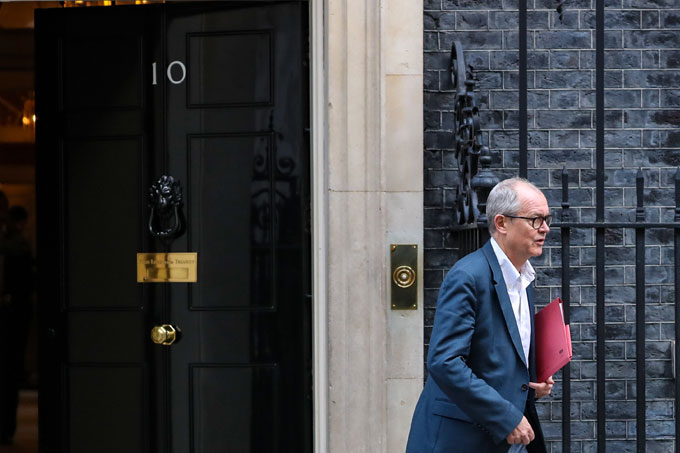Dr Stephen Scoffham looks at how experts are helping with the Covid-19 pandemic and how they can help with a new way of living in harmony with the environment in the future.
We are getting used to seeing the Prime Minister and senior politicians delivering statements about covid-19 flanked by their chief medical officers. After decades in which expert opinion has been derided in public debate, the importance of scientific advice and evidence has suddenly been re-discovered and is once again politically desirable.
We all want to know the facts about this new disease and we are turning to doctors and professional researchers for the answers. Given the scale and the nature of the current crisis this makes perfect sense. But it is important to understand that there are limits to what scientists can tell us.
The covid-19 pandemic has highlighted the importance of preventive action to stop the virus spreading. Governments around the world have intervened in different ways as they have sought to interpret the evidence. We may never know for certain whether herd immunity or quarantine are better policies. Furthermore, the damage to the economy resulting from widespread lock-down itself carries long term health risks which need to be balanced against more immediate life-saving benefits. These are fine judgements which cannot be based on science alone. A crucial element is our attitude to risk both as individuals and as a society.
We also need to be wary of depending too heavily on technology. A vaccine against covid-19 would be hugely valuable but takes time to develop and is unlikely to be totally effective anyway. Equally, hygiene and cleanliness are vital in containing the spread of covid-19 but can’t be expected to eliminate it. Spraying streets and buildings in towns with powerful chemicals, as is happening in some places, parallels the reliance on fungicides and insecticides to protect crops. Both bring immediate benefits but working against the rhythm of life in this way is ultimately unsustainable.
There are significant parallels between our response to covid-19 and our response to climate change. In both cases, science tells us what is happening and we turn to technology in the hope that it will fix the problem. But as Mike Hulme, one of the world’s experts on climate change argues, such an approach smacks of hubris. It would be better, he contends, to harness science and technology to increase resilience so that we live more sustainably and are more able to cope with unexpected events. Seeking to dominate nature is both undesirable and unattainable.
There are good reasons to suppose that one of the underlying causes of the current pandemic is the erosion of biodiversity (John Viddal, ‘Tip of the Iceberg’: Is our destruction of nature responsible for Covid-19?’ The Guardian March 3rd 2020). Economic development, he points out, is leading to degraded habitats and a proliferation of species most likely to transmit new diseases to humans. There is now a new discipline called planetary health which focuses on the connections between the well-being of human beings and other forms of life. This recognises that people are part of nature and do not stand apart from or above it.
Recalibrating science and technology so that they support the larger objective of eco-centric thinking, could be one of the positive outcomes of the current crisis. We are going to need the experts more than ever in the years ahead, but it is important to see they channel their efforts towards the search for new ways of living that are in balance and harmony with the planet that supports us.
Dr Stephen Scoffham is a Visiting Reader in Sustainability and Education.
 Expert comment
Expert comment Jeanette Earl
Jeanette Earl 1373
1373


